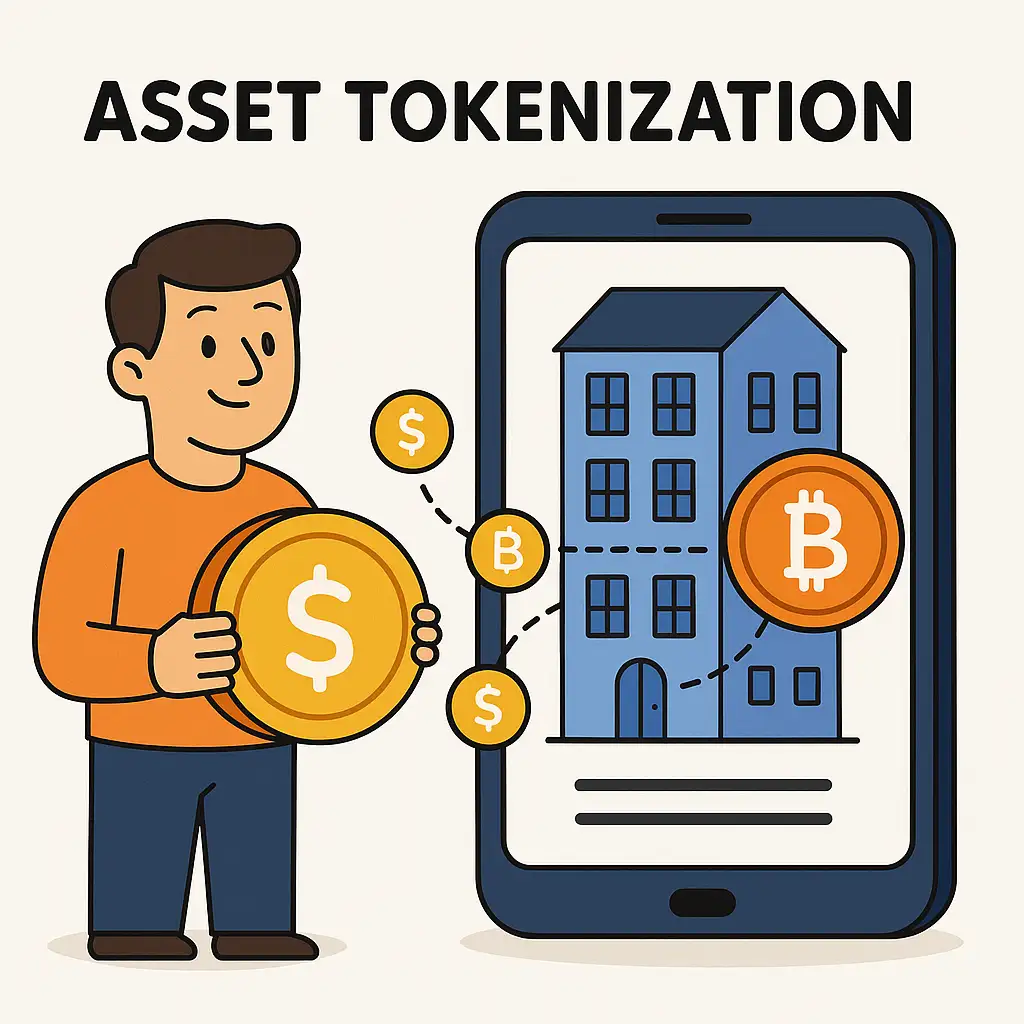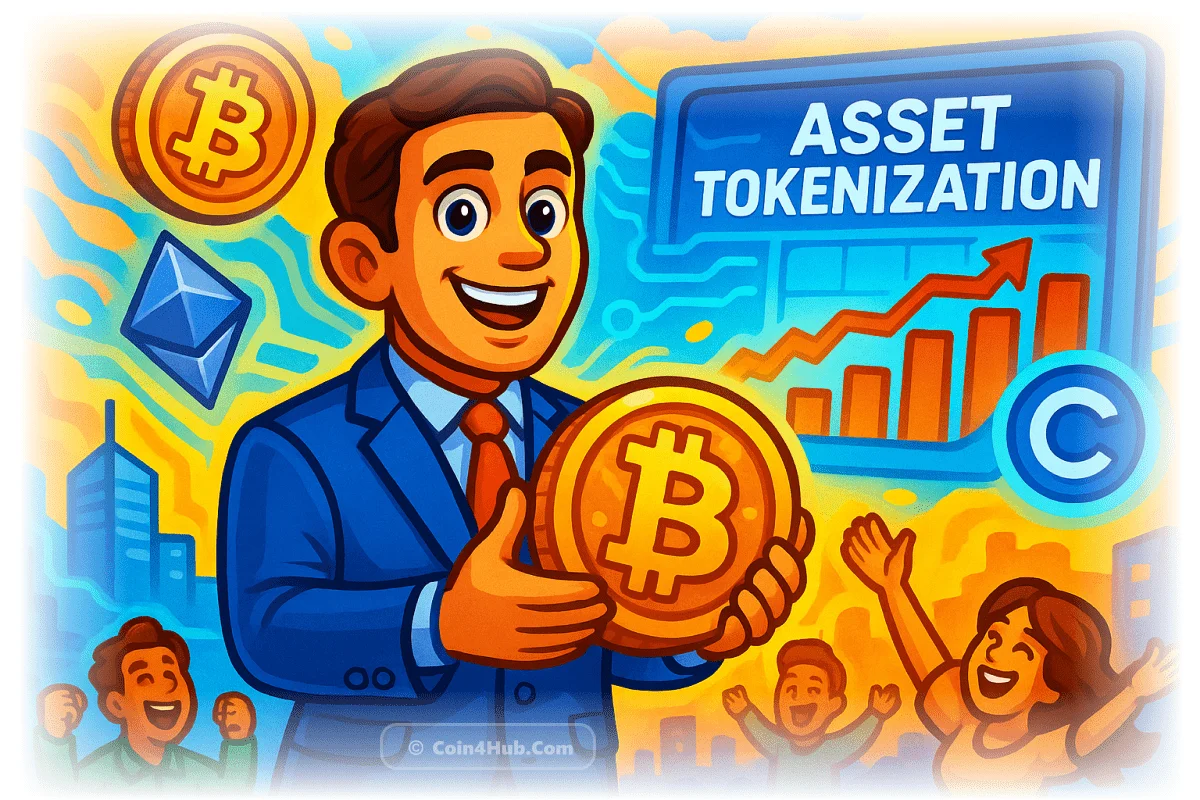The investment landscape is undergoing a revolutionary transformation through asset tokenization, opening unprecedented opportunities for retail investors to participate in markets that were traditionally reserved for the wealthy elite. During a compelling session at Consensus 2025 in Toronto, Robinhood Crypto’s Senior Vice President Johann Kerbrat shared groundbreaking insights into how tokenization is democratizing investment access.
Table of Contents
Understanding Asset Tokenization and Its Impact
Asset tokenization represents a fundamental shift in how we approach investments. By converting real-world assets into digital tokens on the blockchain, this technology is breaking down barriers that have long restricted investment opportunities to a privileged few. As Kerbrat highlighted, traditional investment vehicles like private equity and prime real estate have historically been accessible to only about 10% of the U.S. population.
The Democratization of High-Value Investments
Consider this: while purchasing an entire apartment in New York City might be out of reach for most investors, tokenization enables fractional ownership, making it possible for anyone to own a piece of premium real estate. This revolutionary approach is transforming how we think about investment accessibility.
Major Players Embracing RWA Tokenization
The adoption of Real World Asset (RWA) tokenization isn’t limited to innovative fintech companies like Robinhood. Industry giants including BlackRock, Franklin Templeton, Apollo, and VanEck are all exploring this transformative technology. This widespread institutional interest signals a significant shift in the investment landscape.
Current State of RWA Market
According to recent data from RWA.xyz, the tokenized asset market has reached impressive milestones:
- Total market capitalization: $22.5 billion
- Number of asset holders: 101,457
- Average holding per investor: $221,867
The Evolution of Stablecoins in the Tokenization Ecosystem

Stablecoins are emerging as a crucial component of the tokenization ecosystem. Kerbrat predicts a future with hundreds of specialized stablecoins, each serving specific market needs and use cases. Currently, the stablecoin market is dominated by:
- Tether’s USDT
- Circle’s USDC
Together, these two giants control 87.1% of the $243.3 billion stablecoin market cap.
The Future of Specialized Stablecoins
As the market matures, we’re likely to see the emergence of more specialized stablecoins designed for specific use cases, such as cross-border transactions between particular regions. This evolution will likely lead to the development of sophisticated platforms managing multiple stablecoin types.
International Perspectives and Regulatory Considerations
The global financial community is closely monitoring these developments. Recent statements from Italian finance officials have raised concerns about dollar-pegged stablecoins, suggesting potential risks that exceed even traditional economic challenges like trade tariffs.
Practical Applications and Future Implications
The practical applications of tokenization extend far beyond simple asset digitization. We’re seeing emerging use cases in:
- Real estate investment trusts (REITs)
- Private equity funds
- Art and collectibles
- Infrastructure projects
- Commercial real estate
For more insights into cryptocurrency investments and market trends, visit Coin4Hub’s comprehensive guide.
Looking Ahead: The Future of Tokenized Investments
As we move forward, tokenization is poised to reshape the investment landscape fundamentally. The technology’s ability to fractionate ownership of high-value assets while maintaining security and transparency through blockchain technology represents a significant step toward true financial inclusion.
Frequently Asked Questions
What is asset tokenization?
Asset tokenization is the process of converting real-world assets into digital tokens on a blockchain, enabling fractional ownership and easier trading of traditionally illiquid assets.
How does tokenization make investments more accessible?
Tokenization allows investors to purchase fractional shares of high-value assets like real estate or private equity funds, lowering the minimum investment threshold and increasing market accessibility.
What role do stablecoins play in asset tokenization?
Stablecoins facilitate the trading and settlement of tokenized assets, providing a stable medium of exchange and reducing the volatility typically associated with cryptocurrency transactions.
Follow our newsletter to stay updated on the latest developments in asset tokenization and cryptocurrency markets.


The insights from Johann Kerbrat about asset tokenization reflecting a shift towards financial inclusivity are truly enlightening. Exciting times ahead for retail investors!
Asset tokenization is reshaping the investment world significantly, leveling the playing field for many who were previously barred from high-value markets. The advent of fractional ownership not only broadens accessibility but also enhances liquidity for assets like real estate. As the ecosystem evolves, it is crucial to closely monitor regulatory responses to safeguard these innovations from becoming potential financial hazards.
Asset tokenization is genuinely revolutionizing investment, making historically inaccessible markets open to a broader audience. This could redefine wealth distribution globally.
The insights on asset tokenization offered by Johann Kerbrat at Consensus 2025 highlight its potential to democratize investments, a crucial step towards financial inclusivity.